Selectmen accused of circumventing citizens
On a frosty fall night, the Westford Board of Selectmen and the planning board held a joint public meeting in the Westford Academy auditorium at 7pm. The meeting was called in order to address the recent settlement of an asphalt plant, including addressing the longstanding concerns of laws being broken during the negotiation of said settlement.
The venue filled up rather quickly, with many townspeople arriving 20-30 minutes early in order to get a seat inside, as well as find a reasonable parking spot. The boards provided an agenda and materials relating to the recently agreed upon settlement with Newport Materials, the company creating the plant.
Security was quickly evident in the auditorium, with four police officers spotted around in case they needed to restrain a resident throughout the night. The officers were conveniently placed next to the microphones where citizens were encouraged to use to address any question or concerns they had with anyone on stage.
The eager atmosphere was palpable, but was contrasted with the tense attitude of the majority of those attending, as petitions and flags were handed out in preparation for the meeting to be called to order.
Selectmen chairman Kelly Ross eventually called the meeting to order, quickly going over the ground rules of the public meeting, even going as far as to remind the audience that the police could get involved if needed.
The first of two topics of the evening was to address the roughly 150 complaints with the boards, all effectively saying that the Open Meeting Law was broken when brokering the settlement with Newport Materials.
According to Open Meeting Law, M.G.L. c. 30A, §§ 20,
“Except as provided in section 21, all meetings of a public body shall be open to the public […] except in an emergency, a public body shall post notice of every meeting at least 48 hours prior to such meeting, excluding Saturdays, Sundays and legal holidays. In an emergency, a public body shall post notice as soon as reasonably possible prior to such meeting […] for meetings of a local public body, notice shall be filed with the municipal clerk and posted in a manner conspicuously visible to the public at all hours in or on the municipal building in which the clerk’s office is located.”
Citizens filed these complaints on the basis that the boards had violated the Open Meeting Law when they negotiated and voted on the settlement in closed door executive sessions, where the public was unable to have their voice heard on the matter.
To address the hot button matter, town counsel Jonathan Silverstein spoke about the law itself along with its provisions.
After a long line of questioning from the community at large, it was discovered that the provisions allow there to be a closed executive session on issues such as negotiation when one member of the board attended mediation with the opposite party.
Anger was immediately directed at Silverstein, who began to be accused of advising his clients, the selectmen, to take the settlement deal rather than fighting a judgment in court. Silverstein refuted these allegations, even requesting his clients to waive the attorney-client privilege to tell the audience that he only gave the options in the case, and the board choose for themselves the choice they wanted to make.
Some even went as far as to suggest that Silverstein had helped the board entirely circumvent the citizens in order to broker the settlement.
Furthermore, when it was also revealed that serial communication between board members without a public meeting was illegal, Silverstein noted that he did not consider what had occurred serial communication, and thus they had not violated the law.
The crowd became irate when Silverstein pointed out that the public was at least aware of the negotiations going on within the selectmen executive session. They yelled “Where?” at all of those on stage.
Mr. Ross, who is responsible for approving the items as they are written on the agenda, later recognized that he has written the events occurring in the executive session as strategy for the case against Newport Materials, rather than negotiations for a settlement. With this in mind, it was not clear to the citizens on the day of the town meeting, what their selectmen has been doing during the meeting.
Others called for the release of the minutes of the several executive sessions regarding the topic, but Mr. Ross rebutted that the pending litigation did not allow them to publish the minutes of those meetings at the time. Furthermore, the board defended their decision to hold executive sessions as supposed to a public one because holding sessions before entering court could have given their opponent an unfair advantage.
Accusations eventually came raining down from unhappy citizens. Some called for Silverstein to no longer represent the town as an attorney, and others questioning why the Board of Health publicly stated that they had no knowledge of the settlement being negotiated by the selectmen. Both of these statements were met with cheering and applause.
One item that both sides agreed upon was a full timeline of the events leading up to the settlement in an attempt to paint a full picture of what exactly occurred at each step in the process.
Mr. Ross attempted to move the conversation to the only other topic of the evening, the asphalt plan itself and how the town would benefit from the settlement agreed upon. However, when someone would attack the board on the issue itself, Ross told them that the topic area had not switched yet and they should remain on the topic on hand.
Eventually, the selectmen offered their official response to the allegations of violating the Open Meeting Law, noting all the steps they will take to become more transparent in the future. The response and any following responses are expected to be made public relatively soon.
The final topic of the night began with Silverstein addressing the legal process involved in determining that settlement was the best possible option. He noted that the judge in the case was very hostile to their cause and made their lives difficult every step of the way.
Litigation had been going on for six years, and it appeared time to decide whether or not to fight to the end, or to hold off and get the best deal possible. All the selectmen generally agreed with this line of thinking, with some supporting the settlement itself more than others.
Also, the terms that could be reached while settling far surpassed those terms that could occur if the case was lost in a court battle, as shown by a distributed document made by the planning board at the meeting. The differences included ones in production, traffic, and environmental regulations. The town was given much power to control these factors with the deal and hence made it an attractive offer.
The town was also promised around $8.5 million in various paving services and asphalt production for the town. This compensation, however, did not have a large impact on their decision on settling, according to all members of the board.
The meeting wrapped up with each selectman offering their reason for settling on the deal, generally echoing each other’s opinions on regulation and accepting the loss.
“If I’m going to be stuck with an asphalt plant [..] then I’m damn well going to make sure that this corporation [..] is the most monitored, the most controlled, and the most restricted operation that there is in Westford,” selectwoman Andrea Peraner Sweet said.
However, this talking caused the crowd to become rowdy again, demanding that the selectmen stop talking and allow the citizens to speak one more time before the night concluded.
Mr. Ross responded that the crowd had appeared to have taken up much of the time in the meeting, drawing a handful of boos from the audience.
As the night came to an end, one Westford resident summed up the night sufficiently.
“I think [the meeting] went about how everybody expected. There’s a lot of people very angry about it. I think the board has explained themselves quite well. [..] you can see why they feel the way they did,” Wade Fox said.

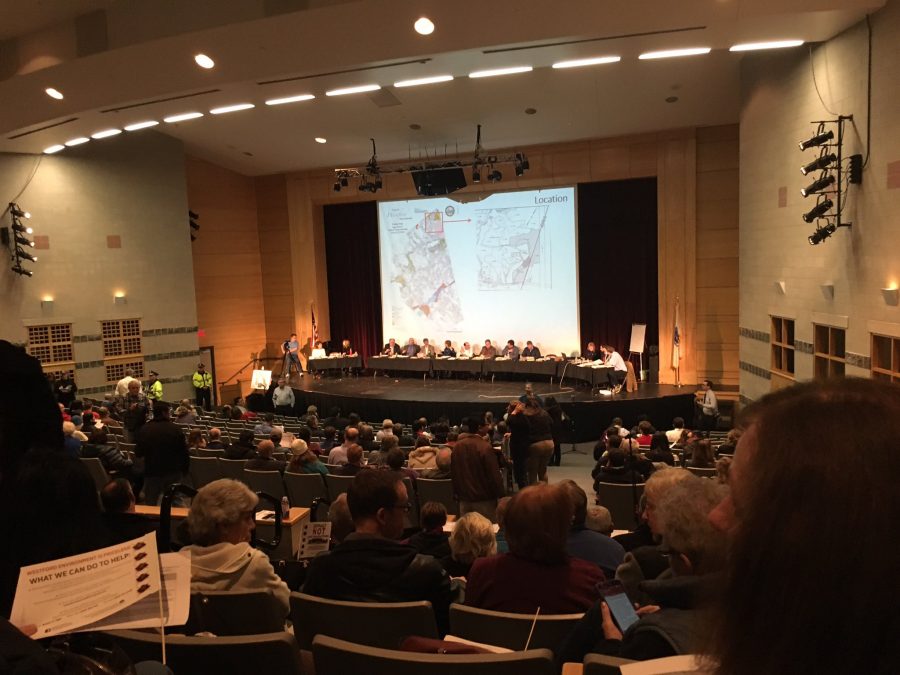
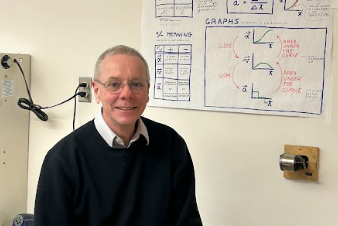
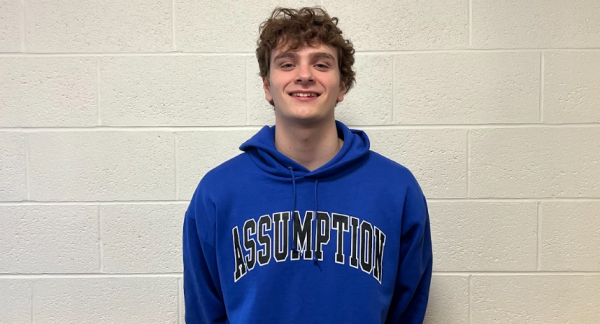
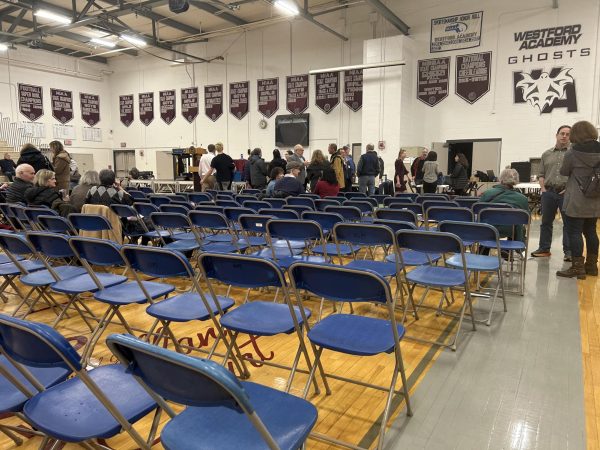


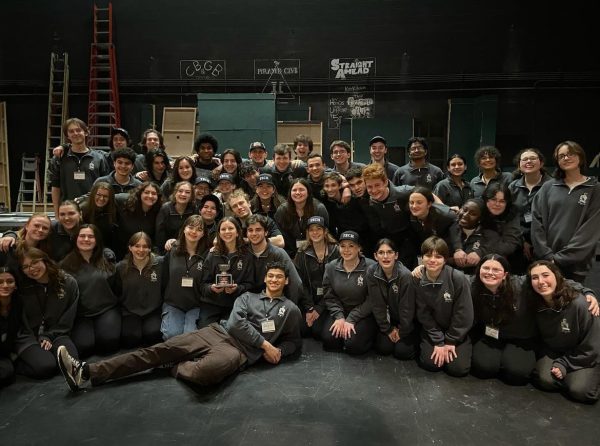
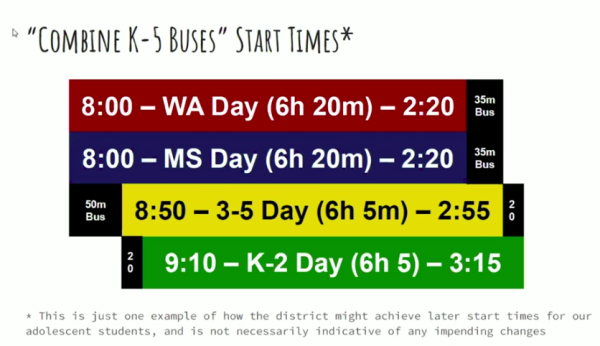
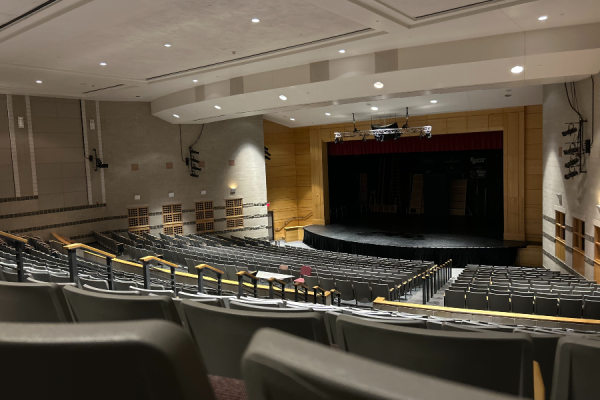
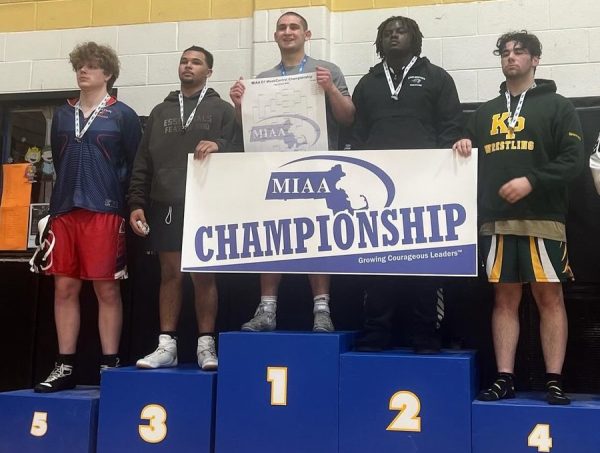

Joyce Pellino Crane • Oct 27, 2016 at 12:35 pm
This is a well-written, accurate and balanced story that captures the atmosphere of the meeting. Well done Andrew Friel! This was not an easy story to write and you rose to the occasion.